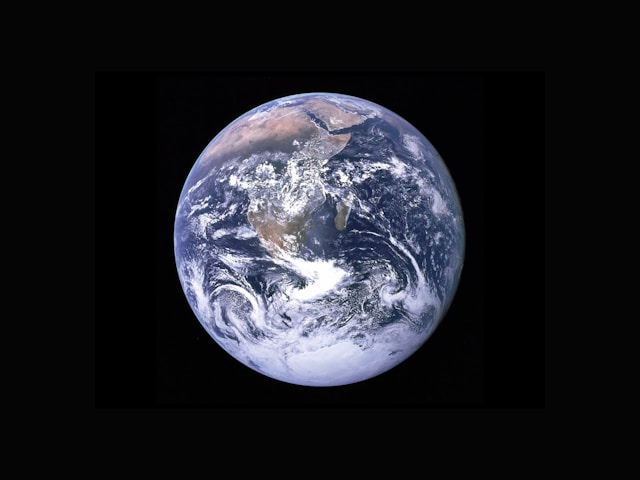Rain whispers on leaves,
a slow dance of drips and dreams—
thirsty earth sighs, full.

Image provided by https://unsplash.com/@nasa
The Existential Quest in Astrophysics: Beyond the Search for Water
As part of the National Astronomy Week in United Kingdom, the subject of water on other planets came to the fore. Astrophysicists' pursuit of water on distant planets often signals a quest for life beyond Earth. At its core, this search raises profound existential questions: Why are we searching for life elsewhere? Is it merely for potential colonization? Man is reminiscent of two baboons squabbling over a banana while destroying the garden around them? Humanity has already left indelible marks of ruin on Earth; if we were to inhabit another planet, how long before we replicated the same fate there?
Alternatively, if our motive is to uncover the origins of life, why then do we overlook the narrative of creation presented in Genesis 1:1, "In the beginning..."? Detractors may argue that incorporating God into scientific discourse is unscientific. Yet, history tells us that many of the greatest scientific minds believed in a divine architect. The intricate laws of physics, the fine-tuning of cosmic constants, and the complexity of life often suggest to some the hand of a deliberate designer—a higher intelligence they may identify as God.
Science, while a potent tool for decoding the natural world, inherently possesses limitations. It does not venture into metaphysical realms or tackle the existence of the supernatural. For believers, science enhances the understanding of what they perceive as God's creation, supplementing rather than negating their faith.
Moreover, the inner richness of personal experiences and the elusive nature of human consciousness are not wholly accounted for by scientific means, hinting at a spiritual or divine dimension to our existence. Such experiences frequently bolster the belief in a higher power, enriching the spiritual tapestry of an individual's life.
Importantly, science alone does not lay the foundations for morality and ethics. The presence of objective moral values, which many argue necessitates a moral lawgiver, is another point where discussions about God frequently emerge.
While the scientific community remains divided—with many contending that scientific findings are neutral or even oppose theistic views—the conversation between science and religion continues to thrive. For those who discern a connection, the integration of science and faith offers a more comprehensive understanding of reality than either could alone.
Lastly, we must ponder: if life exists outside our solar system and if it were superior both in power and morality, what would it think of humanity? Our history of adultery, deceit, aggression, environmental destruction, corporate greed, and profound inequalities paints a troubling portrait. What would these beings think of the race called mankind?
In our relentless stride toward cosmic exploration, these reflections remind us of the profound moral and philosophical implications of our scientific endeavours, urging us to look inward even as we reach for the stars.